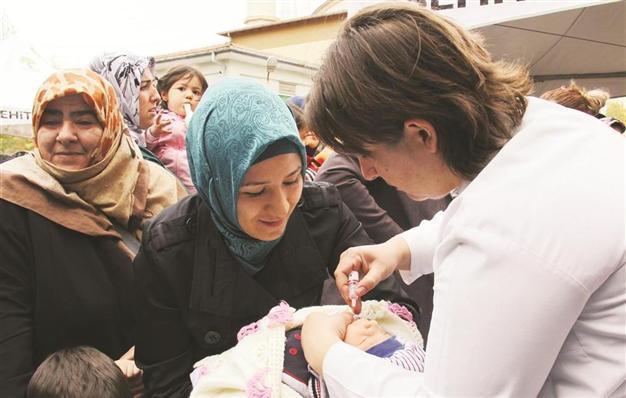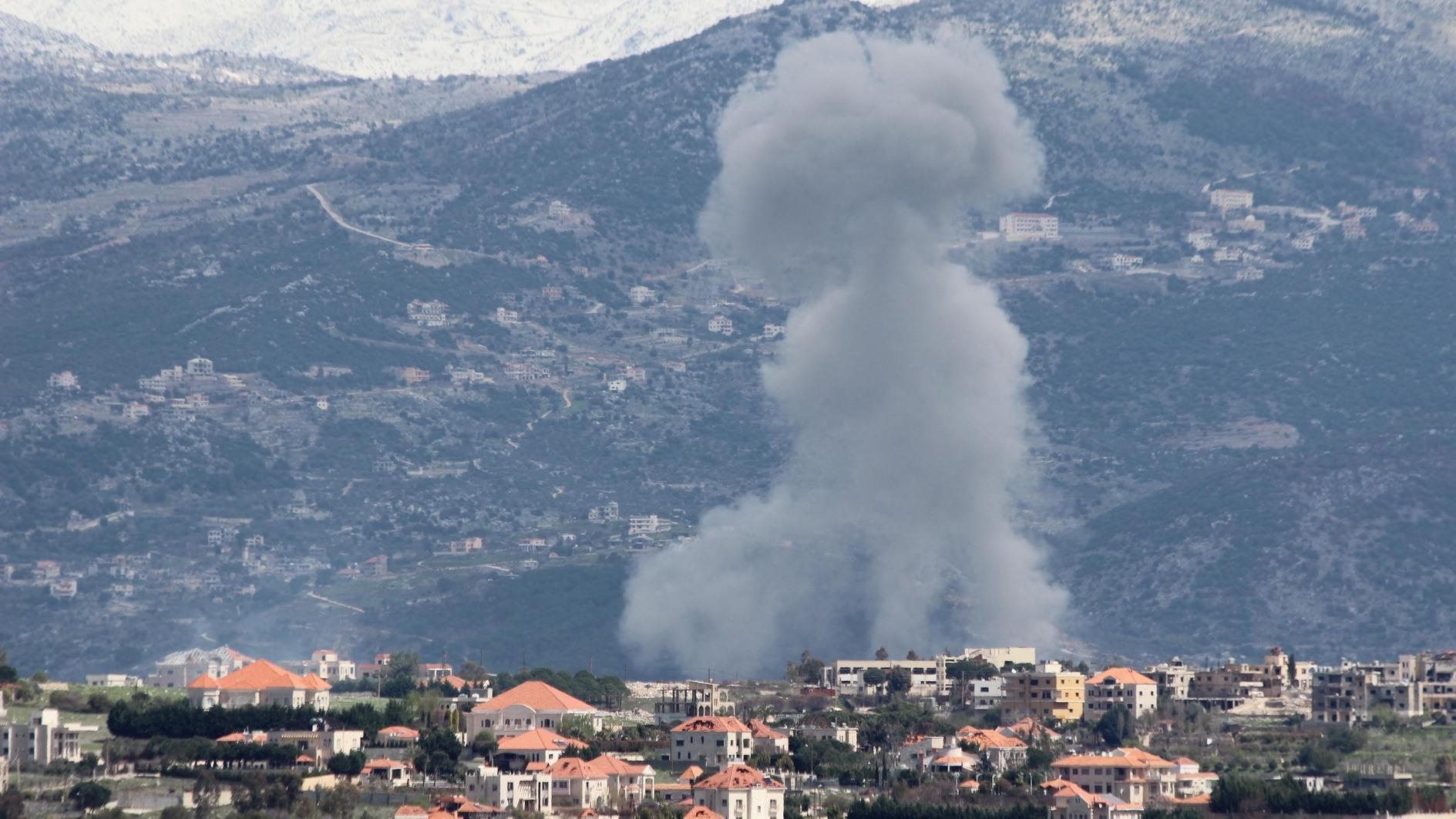Syrian exodus fuels polio fears in Turkey
GAZİANTEP

A medic vaccinates a toddler in the southeastern province of Gaziantep as part of a mass campaign, in which over 1.5 million kids in Turkey will be vaccinated due to fears of an outbreak of polio along the Syria border. AP Photo/UNICEF
Turkey will launch a mass vaccination campaign due to fears of an outbreak of polio along the country’s border with Syria. The moves come following a United Nations announcement that more than 20 million children would be inoculated in Syria and neighboring countries after the illness' re-emergence there after 14 years.“We are planning to vaccinate about 1 million children under 5 years of age in seven provinces near Syria and some 500,000 in other provinces,” Public Health Agency Vice President Mehmet Ali Torunoğlu said, as he started the campaign in the southeastern province of Gaziantep with an official opening ceremony. Over 4,000 health personnel will be deployed over the course of the process.
Earlier this month, the U.N. said emergency plans were under way to vaccinate more than 20 million children in the Middle East, including Turkey, in the region’s largest-ever polio campaign.
Its initiative was announced after the World Health Organization (WHO) reported that polio had re-emerged in war-torn Syria for the first time in 14 years, leaving 10 children paralyzed so far. The WHO claimed that preliminary evidence indicates that the polio in Syria is of Pakistani origin. Polio is still endemic in Pakistan, along with Nigeria and Afghanistan.
Polio was eradicated in Turkey 15 years ago but the country, which is home to more than 600,000 Syrian refugees, could be at risk from the outbreak of the disease in its neighbor. Vaccinations began on Nov. 18 in Gaziantep and will also be carried out in six other provinces, on or near the border, that shelter Syrian refugees.
Ebru Akçora, an official from the health board in the southern province of Hatay, said they had not detected any cases of polio yet, but were taking precautions for a possible spread. She said the campaign would continue until Nov. 24 and encompassed Kilis, Gaziantep, Şanlıurfa, Hatay, Adana, Şırnak and Mardin.
“We shouldn’t take the risk because kids who have escaped from Syria have not been vaccinated,” Akcora said.
A member of the Turkish Doctors’ Union, Mehmet Zencir, warned that there was a high risk that the disease may spread to Turkey, citing unregistered Syrian child refugees who have not yet seen a doctor. Zencir said all of the Syrian refugees should be registered to prevent other diseases.
Threat of measles
“We fear the threat of measles the most. It can spread quickly if no measures are taken. All necessary vaccines should be made to kids who stay outside the camps. We are waiting for them to apply to us, but they may not come for various reasons. We should go to them,” he said, adding that adults should also be vaccinated.
Children in unsanitary conditions are particularly vulnerable to infection with the polio virus, which spreads through fecal-oral transmission and contaminated food and water. It attacks the nerves and can kill or paralyze, often spreading widely and unnoticed before it starts crippling children. For every case of polio, 200 children can be infected. There is no cure, but it can be prevented though vaccination. Children under the age of 5 are most at risk.
Vercihan Ziflioğlu contributed to this report from the Istanbul bureau.
















